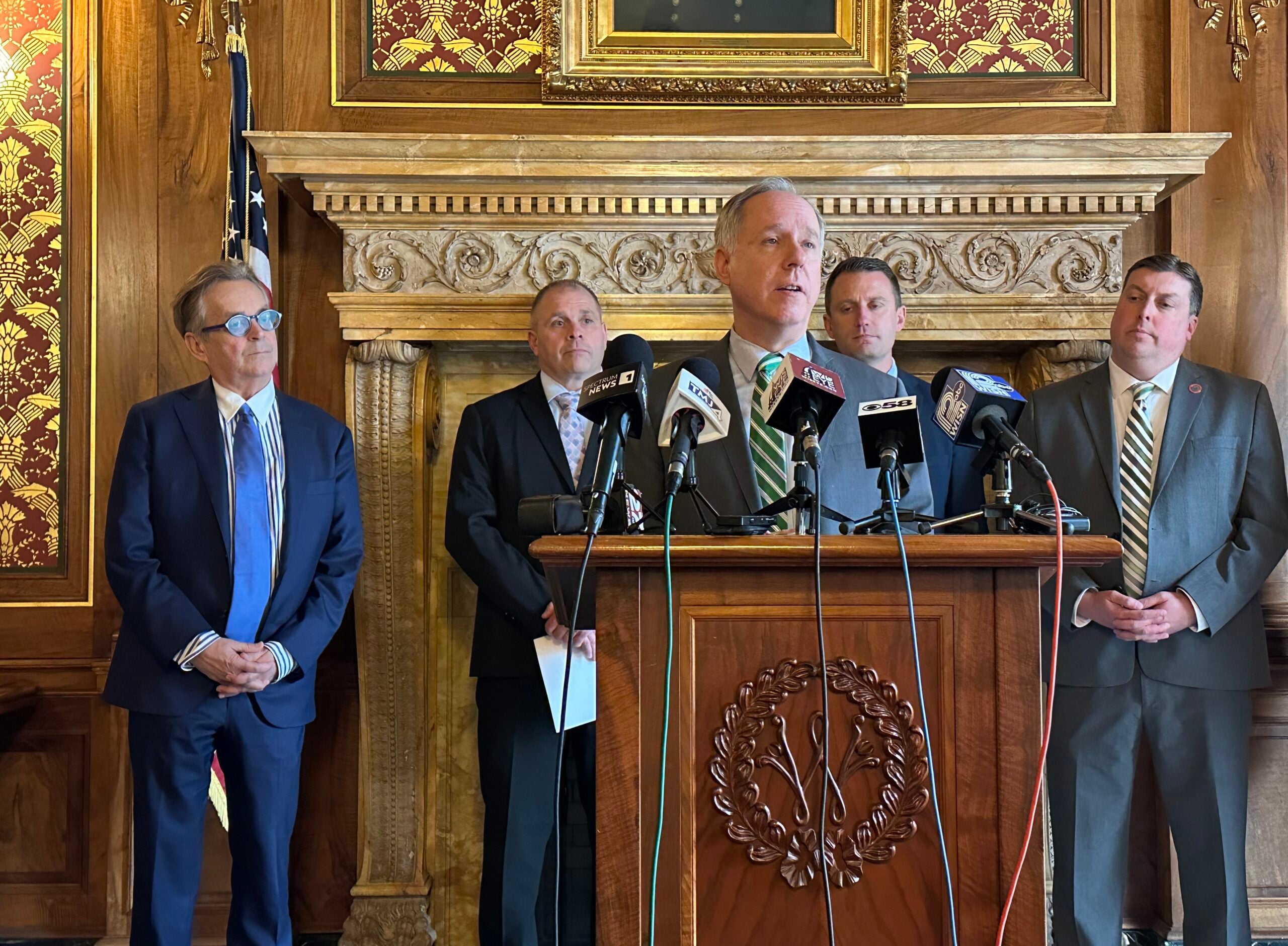State government will see a $753 million jump in state tax revenue over the next few years, according to a new estimate released Wednesday by the Legislature’s nonpartisan budget office.
Most of the increase, which is being driven by higher income and corporate tax collections, would be front-loaded, leaving state government with about $1 billion in its general fund on June 30, the day the current budget ends.
The higher numbers come as Republicans on the Legislature’s budget committee are starting to vote piece by piece on Evers’ proposed budget for the next two years.
Stay informed on the latest news
Sign up for WPR’s email newsletter.
Shortly after the new estimate was released, Evers’ office announced the governor would make a $56 million payment to retire additional state debt. Evers also called on the Legislature to approve an additional $15 million for worker training as well as $18 million more for the Wisconsin Technical College System.
“After eight years of Republicans racking up debt on our state’s credit card, today we’re making one of the most significant additional debt payments in state history,” Evers said in a statement. “I’m also calling on Democrats and Republicans in the Legislature to work together to support my proposal to make additional investments in our workforce. Saving taxpayer money and investing in the future is a win-win.”
Republican leaders were less specific about what they want to do with the extra revenue, although state Senate Majority Leader Scott Fitzgerald, R-Juneau, and Assembly Speaker Robin Vos, R-Rochester, both floated the idea of cutting taxes.
“Wisconsin is seeing a return on our responsible fiscal management over the last eight years,” Fitzgerald said in a statement. “As a result, we find ourselves in a great position to cut taxes, make smart investments in infrastructure, and maintain a strong closing balance.”
“Assembly Republicans are announcing our intentions to put these dollars toward providing tax relief, growing the rainy day fund and paying down debt,” Vos said in a statement. “Now is not the time to go on a spending spree with one-time revenues. We refuse to spend in a way that we can’t afford.”
While lawmakers and governors can add more money to the state’s rainy day fund if they choose to, deposits to the fund are mostly on auto-pilot.
According to the nonpartisan Legislative Fiscal Bureau, if these estimates hold, it would mean a $291 million deposit in the rainy day fund, bringing its total balance to about $617 million.
Wisconsin Public Radio, © Copyright 2025, Board of Regents of the University of Wisconsin System and Wisconsin Educational Communications Board.







